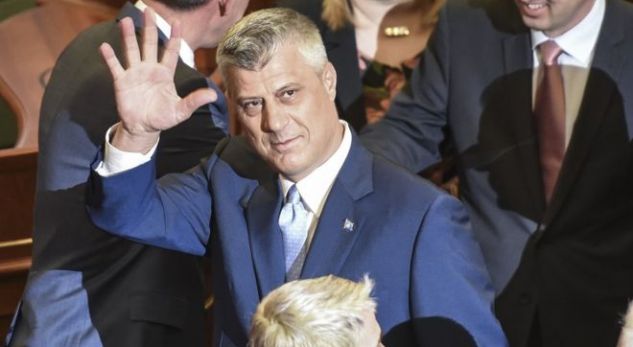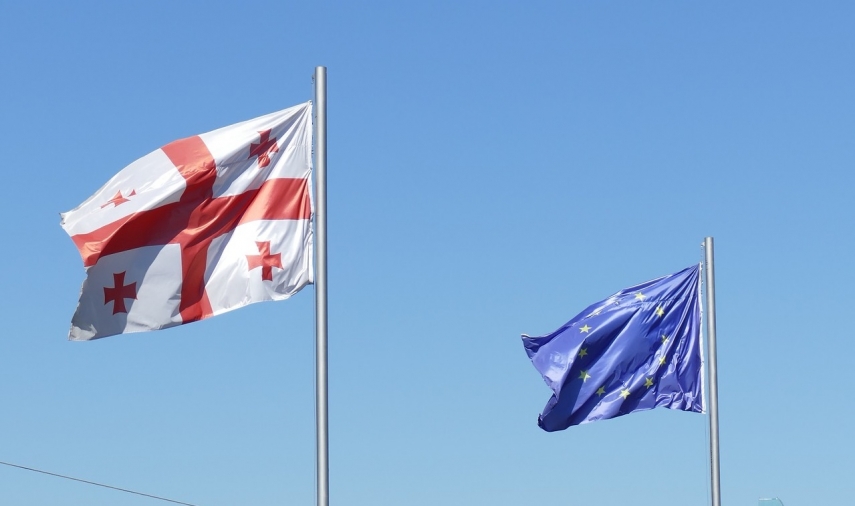EurActiv (21 January 2019)
The EU defines risk management capability as ‘the ability of a Member State or its regions to reduce, adapt to or mitigate risks (impacts and likelihood of a disaster), identified in its risk assessments to levels that are acceptable in that Member State’. The approach is focused on the prevention of natural and man-made disasters setting out an overall disaster prevention framework and proposing measures to minimise the impacts of disasters.
Risk management capability is assessed in terms of the ‘technical, financial and administrative capacity’ of a Member State, either at national or the appropriate sub-national level, to carry out adequate (a) risk assessments; (b) risk management planning for prevention and preparedness; and (c) risk prevention and preparedness measures.
As the world becomes more complex and interconnected, sudden and dramatic breakdowns — future shocks — become more likely, such as global supply chain risk, bilateral trade wars, populism, extinction, economic/ financial crises.
But the European Commission currently lacks an overarching function looking at the growing number of risks – environmental, cyber, systemic, geo-political – affecting Europe.
EURACTIV invites you to this high-level forum, co-inciding with the publication and presentation at WEF 2019 of Zurich’s 14th edition of the ‘Global Risks Report’, to discuss the different risks facing Europe in 2019 and how the Commission and Member States can best confront them.
Questions will include:
- How should ‘risk assessment’ be defined?
- What role for technological, scientific and financial resources to manage the evolving global risks landscape?
- How can we manage the increasingly complex systemic risks we face?
- How can we build a more resilient tomorrow and act with a stronger sense of urgency to avoid a potential system collapse?
- How can businesses best prepare and respond to global risks?
No comments yet.
- KAZAKHSTAN RESPONDS TO HOUSE ARRESTS BY CHINA Asia - Pacific 22.01.2019
- BREXIT: THERESA MAY SCRAPS £65 FEE FOR EU CITIZENS TO STAY IN UK Europe - EU 22.01.2019
- KYRGYZSTAN, KAZAKHSTAN BEGIN TALKS ON DUTY-FREE DELIVERY OF OIL & OIL PRODUCTS Asia - Pacific 22.01.2019
-
 KOSOVO WILL OPEN EMBASSY IN MOSCOW FOLLOWING A DEAL WITH SERBIA, SAYS THACI
The Balkans
22.01.2019
KOSOVO WILL OPEN EMBASSY IN MOSCOW FOLLOWING A DEAL WITH SERBIA, SAYS THACI
The Balkans
22.01.2019
-
 LITHUANIA AND GEORGIA WOULD LIKE TO STRENGTHEN ECONOMIC TIES, PMS SAY
The Caucasus and Turkish-Armenian Relations
22.01.2019
LITHUANIA AND GEORGIA WOULD LIKE TO STRENGTHEN ECONOMIC TIES, PMS SAY
The Caucasus and Turkish-Armenian Relations
22.01.2019
-
25.01.2016
THE ARMENIAN QUESTION - BASIC KNOWLEDGE AND DOCUMENTATION -
12.06.2024
THE TRUTH WILL OUT -
27.03.2023
RADİKAL ERMENİ UNSURLARCA GERÇEKLEŞTİRİLEN MEZALİMLER VE VANDALİZM -
17.03.2023
PATRIOTISM PERVERTED -
23.02.2023
MEN ARE LIKE THAT -
03.02.2023
BAKÜ-TİFLİS-CEYHAN BORU HATTININ YAŞANAN TARİHİ -
16.12.2022
INTERNATIONAL SCHOLARS ON THE EVENTS OF 1915 -
07.12.2022
FAKE PHOTOS AND THE ARMENIAN PROPAGANDA -
07.12.2022
ERMENİ PROPAGANDASI VE SAHTE RESİMLER -
01.01.2022
A Letter From Japan - Strategically Mum: The Silence of the Armenians -
01.01.2022
Japonya'dan Bir Mektup - Stratejik Suskunluk: Ermenilerin Sessizliği -
03.06.2020
Anastas Mikoyan: Confessions of an Armenian Bolshevik -
08.04.2020
Sovyet Sonrası Ukrayna’da Devlet, Toplum ve Siyaset - Değişen Dinamikler, Dönüşen Kimlikler -
12.06.2018
Ermeni Sorunuyla İlgili İngiliz Belgeleri (1912-1923) - British Documents on Armenian Question (1912-1923) -
02.12.2016
Turkish-Russian Academics: A Historical Study on the Caucasus -
01.07.2016
Gürcistan'daki Müslüman Topluluklar: Azınlık Hakları, Kimlik, Siyaset -
10.03.2016
Armenian Diaspora: Diaspora, State and the Imagination of the Republic of Armenia -
24.01.2016
ERMENİ SORUNU - TEMEL BİLGİ VE BELGELER (2. BASKI)
-
AVİM Conference Hall 24.01.2023
CONFERENCE TITLED “HUNGARY’S PERSPECTIVES ON THE TURKIC WORLD"









